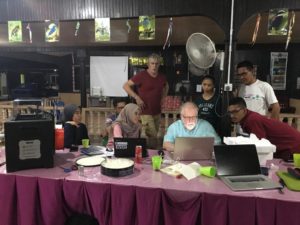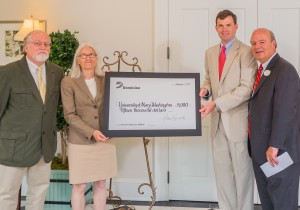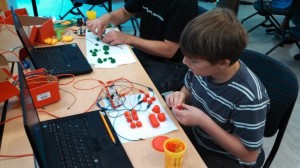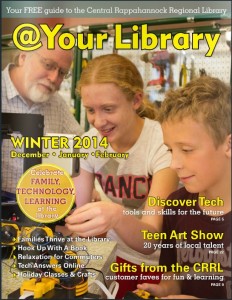The 2020-21 school year will start with five noticeable voids as long-serving faculty leave the University of Mary Washington with emeritus status. The College of Education will say goodbye to professors George R. Meadows and Leslie Jo Tyler, the Department of Theatre and Dance will do the same with Professor Helen M. Housley, and two Jacks – Kramer and Bales – are departing the College of Arts and Sciences.
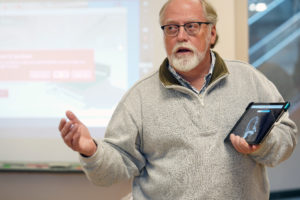
Professor Emeritus of Education George Meadows
George Meadows came to Mary Washington in 1997 not only with an Ed.D. from West Virginia University, but also with a wealth of teaching experience. After earning degrees in geology – a bachelor’s from Marshall University and a master’s from Emory University – the West Virginia native served more than two years with the Peace Corps as a lecturer in geology at the National University of Malaysia, where he taught in the local language.
Meadows was an early adapter to technology. Known today for his instructional technology skills, he was already teaching online in the 1990s when he was research instructor for a National Science Foundation-funded project to support K-12 science teachers across a large geographic area. At Mary Washington, he was as likely to help faculty as students on use of technology, said longtime colleague Professor of Education Marie Sheckels.
She said that Meadows’ students loved his classes and appreciated the opportunities he gave them to explore new technologies, instructional equipment and hands-on material. She said his career demonstrated “he is a generous person who enjoys sharing his knowledge, expertise and excitement for learning with others.”
Meadows has focused in recent years on community outreach in the development of technology and makerspaces in local schools and libraries. He volunteers to support environmental education and STEM studies for the Fredericksburg area’s diverse, low-income children, and he plans to continue both in retirement.
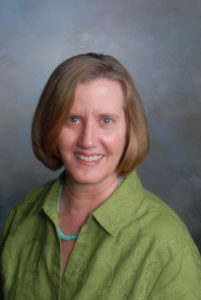
Professor Emeritus of Education Leslie Jo Tyler
Leslie Jo Tyler was hired in 1999 for a new master of education post-baccalaureate program in what was then the Mary Washington College of Graduate and Professional Studies. She “single-handedly directed the development” of UMW’s program to prepare classroom teachers to support English language learners – just when the need was taking off in the Fredericksburg area, according to Professor of Education Jane L. Huffman in a tribute to her colleague.
A linguist with a bachelor’s degree from Michigan State University, a master of education from the University of Virginia and a master’s degree and Ph.D. from the University of Florida, Tyler taught linguistics, sociolinguistics, cross-cultural communication, phonetics, phonology and other courses.
Huffman said that Tyler’s students recognized her demanding standards, just as they recognized her excellence. She became known for hosting annual gatherings so graduates and area professionals could get to know one another and share knowledge and best practices.
“Jo embodies the standards of quality, principles of innovation, and collaboration that are at the core of our programs,” Huffman said.
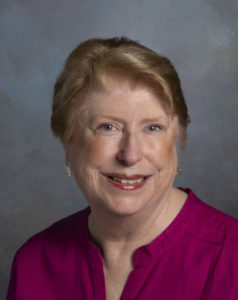
Professor Emeritus of Theatre Helen Housley
In her two decades at Mary Washington, Helen Housley directed 29 productions and was the department’s primary vocal instructor and coach. She taught an impressive variety of theater courses and stepped forward to develop a first-year seminar, which she taught every fall since its inception, according to Gregg Stull, department chair and professor of theater. An example of Housley’s devotion to her craft is that she volunteered over the years to watch thousands of high-schoolers audition for UMW Theatre.
An expert in the Lessac technique of voice, speech and movement training, Housley holds a Ph.D. from the University of Maryland, a master of arts from Western Illinois University, and a bachelor of arts from St. Mary’s College.
In a tribute to Housley, Stull said the department in 2019 scheduled Much Ado About Nothing just so his colleague could direct her favorite Shakespeare comedy before retiring. Rehearsals were under way when the pandemic hit, and the production seemed doomed.
But Housley’s show went on. She innovated and directed the performance via Zoom. More than 1,500 people in 37 states and five countries watched a livestream of the performance, and thousands more saw it on YouTube.
“I never would have imagined when we left campus on March 12 that this semester, in all of its uncertainty, would reveal to me, yet again, Helen’s gifts as a teacher, director and colleague. But it has,” Stull said. “Helen ends her career at UMW in the same way she has lived it for the last 20 years – by giving tirelessly to our department and selflessly to our students, demanding as much from all of us as she does from herself. Such is her hallmark of excellence.”
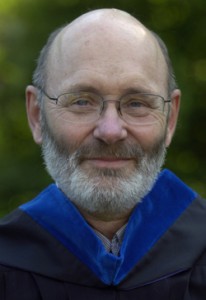
Distinguished Professor Emeritus of Political Science and International Affairs Jack Kramer
Distinguished Professor of Political Science and International Affairs Jack Kramer is retiring with numerous distinctions after half a century at Mary Washington. During his long tenure, Kramer served as visiting professor of strategy and policy at the United States Naval War College, research fellow for the Russian Research Center at Harvard University, senior fellow for the National Defense University, and Fulbright-Hayes Fellow in the former Czechoslovakia and Yugoslavia.
After earning an undergraduate degree at LaSalle College and a master’s at the University of Virginia, Kramer received a doctorate in political science and Soviet area studies from U.Va., where he was a Woodrow Wilson Fellow, a DuPont Fellow and a University Fellow. In 2002, the Virginia Social Science Association named him the “Outstanding Political Scientist of Virginia,” and UMW awarded its 2006 Grellet C. Simpson Award for Excellence in Undergraduate Teaching to Kramer. He wrote The Energy Gap in Eastern Europe (D.C. Heath, 1990) and numerous articles and professional papers on political life in Communist and Post-Communist polities in Europe. In addition, he was the longtime co-leader of Mary Washington’s unique study-abroad program called European Capitals.
“I’m a happy camper,” Kramer declared on the eve of his retirement. “I’ve had a good run [having] been blessed with many fine colleagues and wonderful students and been paid to teach and write about a subject I still find fascinating and gripping.”
His colleague and current department chair, Professor Elizabeth Freund Larus, said Kramer, longtime chair, “has been the cornerstone of the department … building a collegial environment in which we all appreciate what each of us contributes to the department and the discipline.”
Kramer added: “I had never heard of Mary Washington – or Fredericksburg, for that matter – before I came here; I took the job because we were dead broke and desperately needed money.”
He used that experience as a life lesson for his students, many of whom have gone on to fill high-ranking government positions. “It’s good to plan,” Kramer said, “but don’t obsess about it.” He added, “Life works in funny ways and much of what happens in it is purely serendipitous so be open and receptive to unanticipated opportunities and seize the moment to exploit them.”
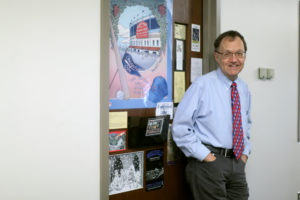
Reference and Humanities Librarian Emeritus Jack Bales
After four decades at Mary Washington, Reference and Humanities Librarian Emeritus Jack Bales has retired from the University of Mary Washington. But the meticulous researcher and expert on the history of baseball won’t quit studying and writing about his beloved Chicago Cubs.
“What am I going to do without Jack?” asked University Librarian Rosemary Arneson, his friend and colleague. Bales has led about 100 research sessions for students annually, she said, and his Citing Sources is UMW Libraries’ most popular guide, with over 6,000 hits. Faculty depend on him for support, too, including some of his former students who now teach at their alma mater.
“He is happiest when he is in the library early on a Saturday morning, poring over the microfilm of early Chicago newspapers, and he loves nothing else so much as a good footnote,” Arneson said in a tribute to Bales.
The Positivity Post, a UMW student-led weekly newsletter designed to spread good news during the gloomy COVID-19 days, recently described Bales as a UMW “institution.” The article went on to say that Writing Center director Gwen Hale once hailed Jack Bales as “the Mick Jagger of librarians.” A student countered, according to the article, ‘‘Mick Jagger is the Jack Bales of rock and roll!”
In 2019, Bales released Before They Were the Cubs: The Early Years of Chicago’s First Professional Baseball Team, published by McFarland & Co. A book about the life of Violet Popovich, the woman who shot Cub Billy Jurges, will be published later this year by The History Press. Bales’ books include literary studies on American authors Horatio Alger Jr., Kenneth Roberts (Northwest Passage), and Esther Forbes (Johnny Tremain).
In addition, he’s written extensively about the late Southern author Willie Morris, who is best known for his award-winning North Toward Home and the memoir My Dog Skip, which was made into a popular film. Morris and Bales became friends, leading to Morris’ memorable guest lectures at Mary Washington in 1998, during which he captivated students, faculty and community members.
“Jack is much more than a great teacher and researcher,” Arneson said. “He is a generous colleague, always willing to take an extra shift on the reference desk or to offer words of praise. We will all miss him greatly. And we hope he doesn’t have to wait another 100 years to see the Cubs win the World Series again.”
